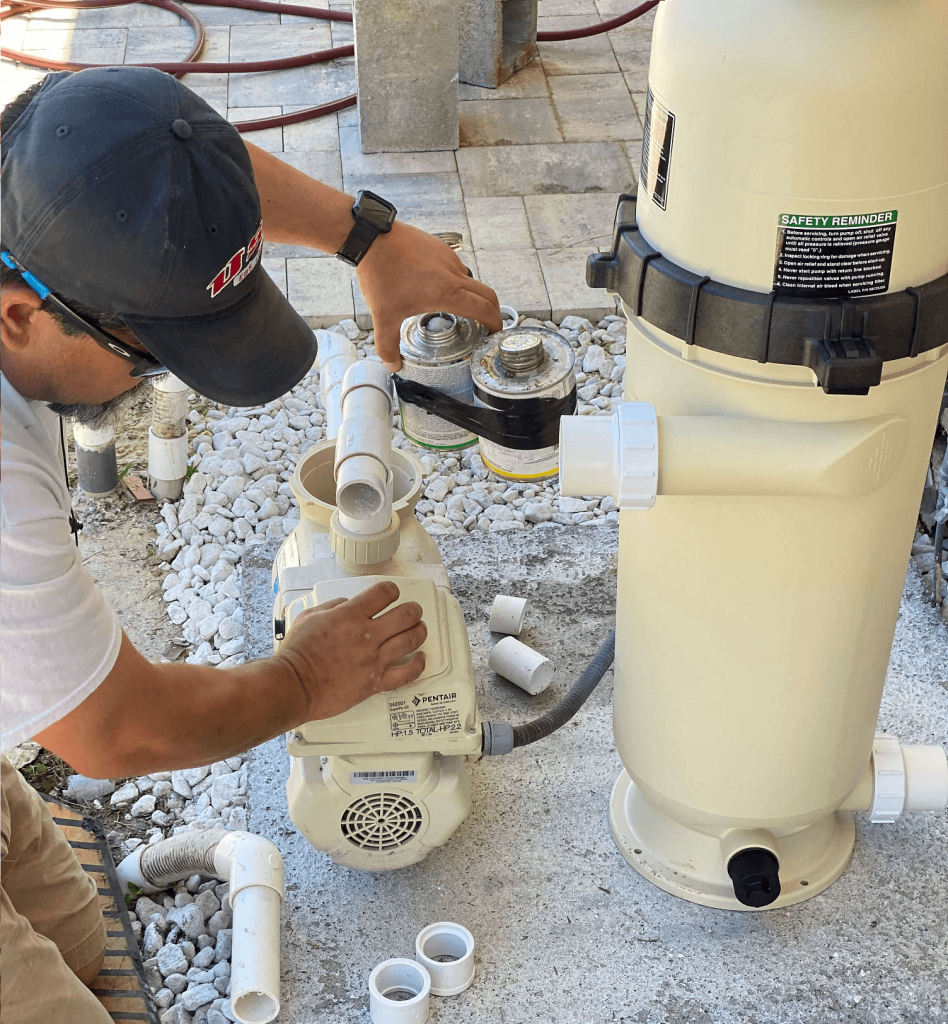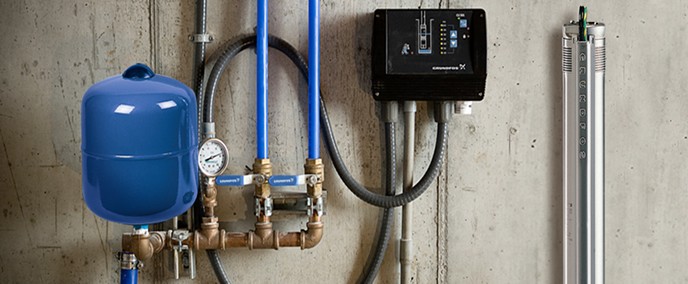Simple And Easy Well Pump Replacement: Revitalizing Your Water Facilities with Confidence
Wiki Article
Recognizing the Key Elements of Effective Water Filtration Equipments

Value of Water Purification Equipment
Water filtering systems play a critical function in making certain access to secure and tidy drinking water by properly removing pollutants and pollutants. These systems are essential in resolving the growing worries over water quality and the potential wellness dangers connected with taking in infected water. By making use of various filtering mechanisms such as reverse osmosis, activated carbon, and UV sterilization, water filtration systems can effectively eliminate harmful compounds like bacteria, infections, heavy steels, and chemicals from the water system.Moreover, water purification systems help to improve the taste and smell of water by getting rid of chlorine, debris, and various other pollutants that can influence its quality. Water Filtration Systems. This improvement in water top quality not just makes it more palatable but also urges people to consume a sufficient quantity of water daily, promoting better hydration and general wellness
Kinds of Filtering Elements

Physical filters are made to physically stress out pollutants from the water. These filters can be made of materials like ceramic, carbon, or also sand, and they function by capturing fragments larger than the filter's pores as water goes through.
Chemical filters make use of various chemical processes to eliminate contaminants from the water. Instances consist of turned on carbon filters, which adsorb impurities, and reverse osmosis membrane layers, which use pressure to different pollutants from the water.
Biological filters use living microorganisms like bacteria or algae to break down organic matter and pollutants in discover this the water. These filters are commonly made use of in wastewater therapy plants or all-natural water purification systems.
Understanding the various types of purification parts is critical for picking the most ideal water filtration system for certain purification needs.
Feature of Debris Filters
Sediment filters play an important function in water filtering systems by effectively catching solid fragments put on hold in the water. These filters are usually the first line of defense in a purification system, getting rid of bigger fragments such as sand, silt, dirt, and corrosion prior to the water relocates through finer filtration stages. By capturing these sediments, the filters prevent them from reaching downstream components, thus expanding the lifespan and efficiency of the entire system.The function of debris filters is important in keeping water quality and safeguarding delicate devices from damage caused by debris. Additionally, by eliminating visible particles, debris filters improve the quality and taste of the water. Frequently cleansing or changing sediment filters is vital to ensure optimum performance. Disregarding this upkeep can result in clogging, lowered water flow, and endangered filtering efficiency. On the whole, debris filters are important elements that add significantly to the effectiveness of water filtering systems.
Role of Activated Carbon Filters
Playing a vital function in water filtration systems, turned on carbon filters are critical in removing impurities and pollutants more information from the water supply. As water passes with the filter, the activated carbon holds and draws in onto the impurities, making sure that the water that comes out on the various other side is cleaner and safer for consumption.Activated carbon filters are highly efficient at improving the taste and smell of water by lowering chemicals that can affect its quality. Due to their versatility and dependability, activated carbon filters are a vital part in ensuring that water is purified to the greatest requirements before getting to customers.
Understanding Reverse Osmosis Systems
Reverse osmosis systems are sophisticated water purification systems that utilize an advanced process to get rid of pollutants and contaminations from alcohol consumption water. These systems work by using stress to the water, forcing it via a semi-permeable membrane layer.In addition, reverse osmosis systems are relatively low-maintenance and can be installed under the sink or in a central filtering system, giving hassle-free accessibility to tidy water throughout the household. Generally, recognizing how reverse osmosis systems function can assist individuals make notified decisions about their water filtering needs.
Conclusion
In conclusion, efficient water filtering systems are essential for ensuring tidy and safe drinking water. By understanding the feature and duty of each part, individuals can make informed choices when selecting a water filtering system.Water purification systems play a critical role in guaranteeing access to tidy and secure alcohol consumption water by successfully removing pollutants and impurities. By using numerous filtering devices such as reverse osmosis, activated carbon, and UV sanitation, water filtering systems can successfully remove hazardous compounds like bacteria, infections, heavy metals, and chemicals from the water supply.
Sediment filters play a vital duty in water filtration systems by properly catching strong bits suspended additional reading in the water (Water Softeners).Playing an important role in water filtration systems, activated carbon filters are instrumental in removing contaminations and contaminants from the water supply.Reverse osmosis systems are innovative water filtering systems that use a sophisticated procedure to get rid of contaminants and contaminations from alcohol consumption water
Report this wiki page